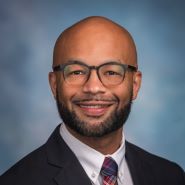2021-2022 Scholars

Karen Alexander
Karen Alexander PhD, RN is a nurse-scientist focused on improving health disparities among women with opioid use disorder (OUD). Her research is informed by 16 years of clinical practice as a registered nurse which prompted a desire to work towards equitable environments in healthcare. She is an Assistant Professor in Jefferson College of Nursing with a secondary appointment in the Sidney Kimmel Medical College, Department of Obstetrics and Gynecology. She graduated with her PhD in 2018 from Duquesne University, during which she was supported by the Jonas Nurse Scholars program. Her dissertation research found 45% of women with OUD had high to moderate depression symptoms at baseline entry into a mindfulness intervention (n=175). This finding impressed upon her the high burden of mental health symptoms for women with OUD and the potential of behavioral interventions to improve psychosocial outcomes, as the intervention demonstrated decreased stress and depression symptoms in participants. Her long-term goal is to improve the delivery of comprehensive opioid use disorder treatment through providing support to both physical and mental health needs. She is currently working on two projects: 1) a retrospective study which will identify risk of treatment discontinuation based on depression levels for women in OUD treatment and 2) an mHealth intervention (eMOM) for pregnant women with OUD aiming to improve patient-provider interactions.
 Julie Ober Allen
Julie Ober Allen
Dr. Allen’s program of research seeks to better understand and address the mechanisms through which chronic stressors rooted in social and structural inequities (e.g., discrimination, race and gender ideologies, ageism) get “under the skin” to generate disparities in chronic disease among older U.S. adults. This work focuses on the complex interactions between contextual, psychosocial, biological, and behavioral factors involved in stress and coping processes. Most of her research to date has focused on racial health disparities, the health of older adult Black men, and chronic diseases associated with stress and aging such as diabetes, cardiovascular conditions, cancers, and multimorbidity. The underlying motivation for this research is to develop innovative, community-based strategies to prevent and treat chronic disease among socially marginalized groups that integrate stress and coping research with best practices for developing contextually- and culturally-specific health promotion interventions. Dr. Allen holds a PhD in Health Behavior and Health Education from the University of Michigan School of Public Health.
 DeAnnah Byrd
DeAnnah Byrd
Dr. DeAnnah Byrd is an Assistant Professor at Arizona State University (ASU) in the Edson College of Nursing and Health Innovation. She received her PhD in Community Health Sciences from UCLA’s Fielding School of Public Health. She studies the effects of chronic conditions, psychosocial and physiological stressors and coping behaviors on memory and cognitive changes in older Blacks, with a focus on reducing dementia among minority aging populations. She has received multiple Early Career Awards, including the Susan B. Anthony Aetna Award for Excellence in Research on Older Women and Public Health from APHA (2021), Betty J. Cleckley Minority Issues Research Award from APHA (2020), Butler-Williams Scholar Program Awardee from the National Institute on Aging (2019). Dr. Byrd has also been awarded $35k in pilot grant funding from the Michigan Alzheimer’s Disease Center, $155k from the Alzheimer’s Association and is affiliated with the Center for Innovation in Health & Resilient Aging at ASU. Dr. Byrd is a member of the ADRD Cohort.
 Yarneccia Dyson
Yarneccia Dyson
Yarneccia D. Dyson, Ph.D., MSW is an award-winning, equity minded thought leader committed to inclusive excellence and social justice. As a Social and Behavioral Scientist, Dr. Dyson engages in health disparities and sexuality/sex-positive research that focuses on reducing and alleviating negative health outcomes by empowering historically oppressed communities using culturally congruent health promotion interventions through Implementation Science. She is an Assistant Professor of Social Work at The University of North Carolina at Greensboro where she also teaches in the Joint Master of Social Work Program and served on the Development Committee for the newly formed Joint PhD Program with North Carolina A&T State University. Dr. Dyson grounds her teaching, scholarship, research, and community engagement in empowerment-based theories and qualitative methodologies. From an intersectional lens, her program of research focuses on how mental health/self-esteem, sexual decision-making skills, and binge drinking behaviors influence the risk for HIV among Black college students who are 18-29. Dr. Dyson is the Principal Investigator of Engage3, a Pilot Study that tests the feasibility of a biomedical-behavioral HIV prevention intervention that she developed based on the findings from an initial study that focused on addressing the Sexual Health Needs of Black College Students enrolled at Historically Black Colleges and Universities and Minority Serving Institutions. She is a Distinguished Faculty Fellow of the Center for Health Equity Research Institute of CSU Long Beach and a Health Disparities Research Scholar of the National Institute for Minority Health and Health Disparities Research Institute.
 Darlingtina Esiaka
Darlingtina Esiaka
Dr. Darlingtina Esiaka is a Visiting Assistant Professor of Psychology at the Union College, Schenectady, NY, and the Principal Investigator of the Health and Aging from Minorities Perspective Laboratory (www.hamplab.org). She received a dual-title Ph.D. in social psychology and gerontology from the University of Kansas, Lawrence, KS. In her research, she examines social determinants of chronic illness prevention and survivorship among older Black people. Her secondary line of research uses a decolonial lens to examine obligation of care to elders with debility. She has received numerous awards and fellowships including the prestigious Kathleen McCluskey-Fawcett Woman Mentoring Women Award from the Emily Taylor Centre for Women and Gender Equity, the Gerontological Society of America (GSA)'s Diversity, Mentoring, Career Development and Technical Assistance Fellowship, the Career in Mental Health of Aging (CIMA) fellowship, and the Louise Julie Doehring’s Excellence in Gerontology award.
 Daniel Gan
Daniel Gan
Dr. Gan is an urban designer/health sociologist with expertise in mental health implementation science at Simon Fraser University, Canada. He uses advanced mixed-methods to develop and test new interventions to prevent cognitive decline in community, following NIH Intervention Stages and the CAP (Cohesion, At-homeness, Playfulness) Model. These include systematic scoping reviews, scale development, structural equation modelling using big data, and eMental Health intervention trials. The original CAP Model draws on theories from community psychology, environmental gerontology, and occupational therapy, and postulates that an “ability to benefit from everyday stimuli” may enhance cognitive reserve and mitigate the lack of education in early life. It uses Deweyan person-place integration (Cutchin, 2004) – which understands persons and place as integrated wholes – to identify modifiable variables for primary and secondary prevention of dementia. Based on the CAP Model, he hypothesized and found that: 1. Cognitively-beneficial everyday stimuli may be inhibited by loneliness and depression. 2. At-homeness and playfulness within a socially cohesive environment may enhance one’s ability to benefit cognitively from everyday stimuli. Dr. Gan is a member of the ADRD cohort.
 Natalie Guerrero
Natalie Guerrero
Originally from the city of Chicago, Dr. Natalie Guerrero is a second year pediatric resident in the Pediatrician Scientist Program at Baylor College of Medicine in Houston. Her overall career goal is to become a practicing pediatrician scientist, conducting research on and delivering interventions that address social determinants that result in health disparities across populations and providing clinical care to underserved patients. She completed her combined M.D., Ph.D. training at the University of Wisconsin in Population Health Sciences. During graduate and medical school training, she led and contributed to projects related to racial/ethnic disparities in healthcare trust, cancer screening services, and food insecurity. In her dissertation, she evaluated the relationship between maternal depression and child problem behavior. Most recently, in her first year of residency training, she published a case report on the intersections of limited English proficiency, delayed diagnoses, and chronic disease. In her third and final year of residency, she will be evaluating the impact of experienced discrimination on mental health and physical activity outcomes in adolescents. She looks forward to participation in MIWI, particularly collaborations with other MIWI scholars and faculty.
 Ángela Gutiérrez
Ángela Gutiérrez
Ángela Gutiérrez is an Assistant Professor in the Department of Social Medicine at Ohio University Heritage College of Osteopathic Medicine. She conducts research at the intersection of public health and medical sociology and employs quantitative, qualitative, and community-based participatory research (CBPR) methods to identify the factors that buffer or exacerbate health disparities among Latinx and Black adults. Her three interdisciplinary lines of research focus on: (1) risk, resilience, and coping among middle-aged and older Latinx and Black Americans; (2) the role of psychosocial factors in shaping cognitive function among Latinx adults; and (3) community-based and culturally informed health research among under-resourced communities. Collectively, these lines of research identify the social factors contributing to the distribution of illness and wellness at the population level, with an overarching goal of mitigating health disparities and promoting health equity. Dr. Gutiérrez graduated with a Master of Public Health from CSU Fullerton. She earned her PhD in Community Health Sciences from the UCLA Fielding School of Public Health and completed her postdoctoral training at the University of Southern California Edward R. Roybal Institute on Aging at the USC Suzanne Dworak-Peck School of Social Work. Dr. Gutiérrez is a member of the ADRD cohort.
 Jaquelyn Jahn
Jaquelyn Jahn
Jaquelyn Jahn, PhD MPH is a social epidemiologist and postdoctoral scholar at the CUNY Stone Center on Socio-Economic Inequality. Her research investigates the consequences of social policies for population health and health equity. Dr. Jahn's current projects examine the intergenerational implications of criminal legal contact for health and well-being across the lifecourse, as well as effects of reforms in U.S. health care and criminal justice policy. Her work has examined how incarceration and police violence affect the health of individuals and their communities. Her research in cancer epidemiology has explored structural racism and discrimination as drivers of inequalities in cancer incidence and prevention. She holds a PhD and MPH from the Harvard T.H. Chan School of Public Health.
 Minghui Sam Li
Minghui Sam Li
Dr. Minghui Sam Li is an Assistant Professor at the University of Tennessee Health Science Center. He is also an Associate Editor of Health and Quality of Life Outcomes. Dr. Li received Ph.D. from the University of South Carolina. His research interests include health disparities, health outcomes, and policy evaluation. Dr. Li is experienced in conducting quasi-experimental design using big data. Dr. Li’s scholarship activities are focused on older minority populations, especially multi-ethnic Asian Americans. His current research examines culture-specific strategies to deprescribe inappropriate medications in older racial and ethnic minority populations on polypharmacy. Dr. Li has published more than 30 articles in peer-reviewed journals, 8 book chapters, and has made more than 60 poster/podium presentations at scientific conferences. He has served as PI and co-I on more than 10 research grants from various funding agencies including the NIH, VA, foundation, and industry.
 Jen H. Martinez
Jen H. Martinez
Jen H. Martinez (they/them/theirs) is a postdoctoral research fellow at Northwestern University Feinberg School of Medicine. They received a Ph.D in Clinical Psychology from the University of Massachusetts Boston. Dr. Martinez’s research is focused on addressing the mental health consequences of racial discrimination and adapting interventions to be responsive to the contextual needs of people of color. They are interested in factors that contribute to disparities in mental health and treatment (i.e., experiences of discrimination, stigma, systemic oppression), and treatment approaches, such as mindfulness-based interventions, that can be culturally adapted and applicable to the lived experiences of POC. Dr. Martinez’s commitment to increasing representation of communities of color in academia and research was recognized by the Ford Foundation Fellowship through the National Academies of Sciences, Engineering, and Medicine and the Distinguished Student Diversity in Clinical Psychology Award through the Society of Clinical Psychology. Dr. Martinez’s dissertation, a randomized waitlist control study of a single session coping with racism intervention, was awarded funding through NIMH R36 mechanism Mental Health Research Dissertation Grant to Enhance Workforce Diversity. Dr. Martinez was awarded the NIH Research Supplements to Promote Diversity in Health-Related Research to examine the effectiveness and adaptations of mindfulness-based strategies for coping with racism among African American adults who completed an 8-week mindfulness intervention. Dr. Martinez’s work is part of a larger goal to ensure that high quality, culturally sensitive evidence-based treatments are acceptable, accessible, and affordable in the service of eradicating mental health disparities, addressing the mental health costs of racism, and achieving mental health equity in communities of color.
 Hiral Master
Hiral Master
Hiral Master is a Postdoctoral Research Fellow within Dept. of Orthopaedic Surgery at Vanderbilt University Medical Center. She holds a PhD in Biomechanics and Movement Sciences (concentration in Clinical & Translational Research) from University of Delaware. She is a licensed Physical Therapist in the United States and a Certified Public Health professional. Hiral Master has a research interest in wearables, musculoskeletal pain (osteoarthritis and low back pain), psychological factors, physical function, epidemiology, health outcomes, and rehabilitation. Her goal is to utilize the rehabilitation and public health expertise to advance evidence-based care. Currently, she has received funding from AOPT to execute a clinical trial on telehealth physical activity for patients undergoing surgery for lumbar degenerative conditions. In all, she is interested in exploring the utility of technology as "digital detectives" to develop better an understanding of the initiation, progression of the disease, and then design hands-on clinical digital intervention trials for to manage the condition. She is also actively involved in different professional organizations (on a national and international level) to spread health awareness and serves as a reviewer for several peer-reviewed journals.
 Hans Oh
Hans Oh
Hans Oh is an assistant professor at the Suzanne Dworak Peck School of Social Work, University of Southern California. He is a social worker and psychiatric epidemiologist who studies the social determinants and health correlates of psychotic experiences. He earned his PhD from Columbia University School of Social Work, and has received fellowships to enhance his training in adult mental health services. These fellowships include a behavioral health fellowship at Yale School of Medicine, where he worked in an acute crisis unit and supervised a peer support program. He also undertook a psychosocial rehabilitation fellowship at the Veteran Affairs in San Diego, where he provided recovery-oriented services to veterans with psychotic disorders. He completed a post-doctoral fellowship in prevention science at the Pacific Institute for Research and Evaluation/UC Berkeley School of Public Health.
 Weidi Qin
Weidi Qin
Weidi Qin, PhD, MSW, MPH is an NIA Postdoctoral Fellow at the Population Studies Center in the Institute for Social Research at the University of Michigan. She completed her PhD in Social Welfare at Case Western Reserve University and her MSW and MPH at Washington University in St. Louis. Dr. Qin is an interdisciplinary scholar trained in gerontological social work. The goal of her research is to improve health-related quality of life and to reduce health disparities among older adults from the life course perspective. Broadly, she studies the mechanism linking stressful life events, psychosocial coping resources, and health outcomes among older adults. Her current program of research focuses on: 1) effective prevention and management of chronic condition in older adults, particularly diabetes; and 2) psychosocial determinants of health behaviors in late life.
 Tennisha Riley
Tennisha Riley
Tennisha Riley is an Assistant Professor of Human Development at the Indiana University – Bloomington School of Education. She received her Ph.D. in Developmental Psychology from Virginia Commonwealth University and completed a postdoctoral fellowship at Indiana University's Center for Research on Race and Ethnicity in Society. Her research focuses on understanding the emotional development of Black youth, examining how Black youth’s social context (family, friends, school) influence emotion expression and emotion regulation, and the role emotion expression and emotion regulation play in Black youth’s mental and physical health. As an adolescent researcher, much of her work situates the foundational knowledge of adolescence within sociocultural context for Black youth. Her research and goals toward intervention development is informed by her clinical training as a Marriage and Family Therapist, and experiences as a multi-systemic therapist for adolescents and their families.
 Antonius Skipper
Antonius Skipper
Dr. Antonius D. Skipper is an Assistant Professor of Gerontology at Georgia State University. Dr. Skipper holds a M.A. in Gerontology from Georgia State University and a Ph.D. in Social Work from Louisiana State University. Prior to joining the Gerontology Institute, Dr. Skipper led initiatives on minority aging and advocacy as an Assistant Professor of Gerontology at Winston-Salem State University. Dr. Skipper’s research involves understanding the intersections of religion, relationships, and health among older African American couples. Within this vein, he conducts in-depth interviews with enduring African American couples from various religious backgrounds, with the goal to understand the processes informing dyadic outcomes. Dr. Skipper recently received funding to conduct a pilot study that seeks to better understand vaccine hesitance among older African Americans. Along with his selection as a Michigan Integrative Well-Being and Inequality Scholar, Dr. Skipper’s honors include the Huel D. Perkins Fellowship, Life Course and Aging Center’s Best Presentation Award, Honorary induction into Phi Alpha Honor Society, selection as a Butler-Williams Scholars Fellow, and selection as an Obesity Health Disparities PRIDE Fellow.
 Courtney Thomas Tobin
Courtney Thomas Tobin
Courtney S. Thomas Tobin, PhD is an Assistant Professor in Community Health Sciences at the Fielding School of Public Health and a Faculty Affiliate of the Ralph J. Bunche Center for African American Studies at UCLA. She earned a master’s and PhD in Sociology from Vanderbilt University. Her research examines the social, psychological, and biological (i.e., biopsychosocial) pathways that contribute to the health and longevity of Black Americans. As a medical sociologist, she integrates traditional sociological theories with perspectives from public health, social psychology, medicine, and the biological sciences to better understand the causes and consequences of long-standing Black-White differences in health. She also considers the multiple ways that racial minority status shapes the everyday experiences and health trajectories of Black Americans across the life course. Her program of research has two main objectives: (1) To examine the links between mental and physical health outcomes, as well as biomarkers, to clarify the ways that social and psychological experiences become physiologically embodied, manifest into psychiatric disorders and chronic conditions, and contribute to distinct health patterns within and across racial groups. (2) To disentangle the mechanisms underlying unique health patterns among Black Americans by evaluating how psychosocial risks (e.g., low socioeconomic status; stress exposure) and resources (e.g., social support, mastery, coping) produce distinct mental and physical health outcomes within and across racial groups.

Claudia Trudel-Fitzgerald, Ph.D., is a Research Scientist at the Lee Keum Sheung Center for Health and Happiness at Harvard University. She holds a Ph.D. in Clinical Health Psychology from Laval University (Canada) and completed a postdoctoral fellowship in social epidemiology at Harvard T.H. Chan School of Public Health. She is passionate about modifiable psychosocial determinants of physical health. Specifically, her research program targets negative psychosocial factors (e.g., anxiety, depression, work-related stress, maladaptive coping) that are related to disease onset and survival, as well as positive psychosocial factors (e.g., optimism, happiness, social integration, adaptive coping) that may promote healthy aging and a longer lifespan. Furthermore, she studies potential behavioral mechanisms involved in such associations (e.g., smoking, physical activity, sleep). More recently, she has also developed expertise in the measurement of psychological well-being in relation to physical health. She is increasingly interested in examining whether these psychosocial and behavioral factors can explain the role of social inequalities in health disparities. In Spring 2021, she co-taught the Social Disparities, Stress, and Health course at Harvard and she is enthusiastic about continuing this learning journey with her MIWI peers and mentors to better understand this complex intersection.
 Vanessa Volpe
Vanessa Volpe
Vanessa V. Volpe, PhD is an Assistant Professor of Psychology at North Carolina State University, where she directs the Black Health Lab. She is also a Diversity Scholar in the Social Sciences through the National Center for Institutional Diversity at the University of Michigan. Dr. Volpe is an applied developmental health psychologist with a focus on the reduction of racial health disparities by employing critical psychological and social justice lenses. Her research aims to explicate the processes by which and the contexts in which Black individuals resist and protect themselves against forms of individual-, cultural- and structural-level marginalization, with specific attention to the preservation of cardiovascular health. She employs an eclectic set of methodologies to answer research questions about health and oppression, from laboratory-based physiological studies to community-engaged research, encompassing quantitative, qualitative, and mixed methods analytic approaches. Before joining the faculty at North Carolina State University, she was an Assistant Professor of Psychology at Ursinus College and an Adjunct Fellow at the Penn Center for Public Health Initiatives. Dr. Volpe received a B.S. in Applied Psychology from New York University and a Ph.D. in Psychology from the University of North Carolina at Chapel Hill.
 Shenghao Zhang
Shenghao Zhang
Dr. Shenghao Zhang is a postdoctoral researcher in the Department of Psychology at the Florida State University. He is also an affiliate of the Institute of Successful Longevity at the Florida State University. Dr. Zhang holds a PhD in developmental psychology from the North Carolina State University. He is interested in technology and aging, specifically, the use of computers, mobile devices, and wearables to support and promote healthy aging. His current reserch examines cognitive benefits of computer/internet use, the use of person-centered technologies to promote adherence to computer-based interventions, and expectations and placebo effects in computer-based interventions. Dr. Zhang has received student research awards from the Gerontological Society of America and Southern Gerontological Society for his previous works. Dr. Zhang is a member of the ADRD cohort.